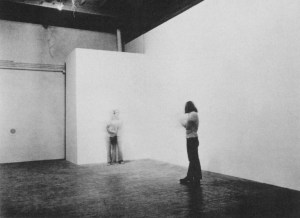We are always en route. No matter our destination, there is always the next stop, the shuffle of feet on and off the train, variably encased in autumnal suedes, daggered high-heels, beachy sandals, or light-up sneaks for the young and unruly. Leaving behind stubborn mud, fresh-scented grass stems, mulish sand, and crinkled bubble-gum wrappers—evidence of the day’s adventures. With each screeching halt of metaled wheels against silver tracks is the sensation of life anew, the bustle of people weaving in and out of existence, a banal magic suspended midair.
There’s a peace about the subway, a calm about the regularity with which people ebb and flow, the chaos of moving bodies distilled to striding, sitting, observing, reading, side-stepping, sleeping, daydreaming, discoursing, hand-holding, rising, departing. In the eye of the storm, for a short while, however brief, there’s a commonality amongst its passengers—at the mercy of the rails, going somewhere and nowhere all at the same time. Under one moving roof, people of every kind and size are united—the shaggy-haired folk-artiste, guitar slung over his back; the immigrant mother breaking off chunks of nutty Cadbury for the round-eyed children tugging at her pantaloons; the adolescent couple, fingers cautiously interlaced, giddy with freshness; the seasoned grandfather, tousling the strawberry-haired toddler atop his knee—all congregated around the ordinary experience of riding the subway. For a moment, the connection is palpable, like a singular thread run and wrapped around a hundred beating hearts, with every pulse, tugging their train forward.
Hospitals are not so different, hundreds of lives quietly intertwined amidst the whirring and beeping of medicine at work, siloed in individual rooms or shoes, yet in communion over the unexpectedness of being there—whether that be the room of joyous hallelujahs punctuated by tiny cries, new lungs gasping for air, or the corner where the air feels porous, one less breath filling the room. It’s a shared passage Donald Hall captures gracefully in the “Ship Pounding”:
Each morning I made my way
among gangways, elevators,
and nurses’ pods to Jane’s room
to interrogate the grave helpers
who tended her through the night
while the ship’s massive engines
kept its propellers turning…
The passengers on this voyage
wore masks or cannulae
or dangled devices that dripped
chemicals into their wrists.
I believed that the ship
traveled to a harbor
of breakfast, work, and love…
I listened in case Jane called
for help, or spoke in delirium,
ready to make the agitated
drive to Emergency again
for readmission to the huge
vessel that heaves water month
after month, without leaving
port, without moving a knot,
without arrival or destination,
its great engines pounding.
As a grave helper myself, I am privy to the tragedy in Hall’s words, the hospital a moored ship, the antithesis of voyage, its engines all the while ironically pounding. But I also can’t help but marvel at the poignancy with which Hall captures the majestic communion unfurling within hospital doors. There are few places where time comes to a standstill, and vastly diverse lives intersect, simultaneously suspended in moments of deep joy, triumph, or sadness—strung along for the same strange journey, wondering if the ship has taken sail.
In many ways, the hospital and subway are similar, but unlike the hospital, the subway bears no walls. Forced to reckon with one another, passengers become part of one another’s lives, albeit for a short while. And from the transparency, arises a simple but profound lesson that “going somewhere” is really just a series of pauses between steps, moments that may feel like “going nowhere,” but somehow add up to the passage of time, and if lived with presence and intention, engender meaningful new life. A simple awareness that growth and strength come from patiently living—the grandfather rocking his strawberry-haired grandchild, the young couple in love, the solitary daydreamer, head resting against the window pane—quietly waiting their turns, riding time on the subway, until their destination arrives. A remembrance that life sleeps for just awhile—for it can’t bear to be forgotten.
Letters of thanks, letters from banks,
Letters of joy from girl and boy,
Receipted bills and invitations
To inspect new stock or to visit relations,
And applications for situations,
And timid lovers’ declarations,
And gossip, gossip from all the nations…
Thousands are still asleep,
Dreaming of terrifying monsters
Or of friendly tea beside the band in Cranston’s or Crawford’s:
Asleep in working Glasgow, asleep in well-set Edinburgh,
Asleep in granite Aberdeen,
They continue their dreams,
But shall wake soon and hope for letters,
And none will hear the postman’s knock
Without a quickening of the heart,
For who can bear to feel himself forgotten?
—W.H. Auden, “Night Mail”
Cover Image: Wikimedia Commons. CC BY-SA 4.0. Metro de São Paulo, Luz Station, Brazil. Wilfredor.
References
1. Hall, Donald. “Ship Pounding.” Without, 1998.
2. Auden, WH. “Night Mail.” Night Mail, 1936.



